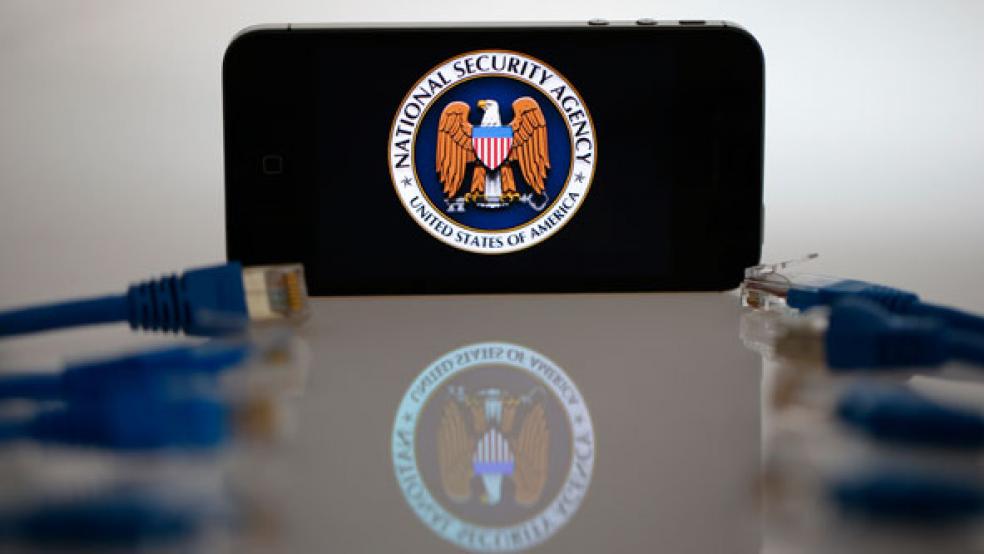The National Security Agency’s bulk collection of Americans’ telephone data was ruled unconstitutional by a federal judge on Monday, in a case that appears to be destined for the Supreme Court.
Ruling in a lawsuit brought by a pair of activists, Judge Richard J. Leon of the U.S. District Court for the District of Columbia found that the government’s arguments in favor of the NSA’s systematic and ongoing collection of all American’s telephone records “is based in large part on a 34-year-old Supreme Court precedent, the relevance of which has been eclipsed by technological advances and a cell-phone centric lifestyle heretofore inconceivable.”
The judge barred the government from collecting the two plaintiffs’ telephone data and ordered the government to destroy any such data that it has already collected. He issued a stay on the enforcement of his ruling pending an expected appeal, but ordered the NSA to be prepared to comply immediately when the appeal is complete.
Related: NSA Leaker Edward Snowden Is About to Break His Silence
The lawsuit in question was spearheaded by Larry Klayman, the politically conservative attorney whose organization, Judicial Watch, has filed numerous lawsuits against the federal government.
Klayman and co-plaintiff Charles Strange argued that they had the standing to sue the NSA because documents made public by NSA whistleblower Edward Snowden revealed that, among other telephone service providers, Verizon Wireless had cooperated with the NSA in its data collection. Both Klayman and Strange, as Verizon customers, asserted that in collecting their data, the government had violated their constitutional protections against unreasonable search and seizure.
Judge Leon agreed, and privacy advocates hailed the ruling as a major victory.
“This is the first federal court to rule on the constitutionality of the NSA telephone records collection program, and it found that the government violated the constitution,” said Marc Rotenberg, president of the Electronic Privacy Information Center, which has filed a separate lawsuit against the NSA.
While the ruling technically applies only to Klayman and Strange, said Rotenberg, it would likely hamstring the NSA’s ability to gather telephone records.
“The practical consequence is that if this opinion by a federal district court judge is upheld on appeal, the NSA would have to change its data collection processes,” said Rotenberg.
The announcement of the ruling came after an eventful few days for the NSA.
Confronted with the widespread anger about the agency’s use of its immense surveillance capabilities, the White House on Friday delivered a tacit vote of confidence in NSA Director Gen. Keith Alexander. Alexander currently oversees both the NSA’s data collection activities and the U.S. military’s Cyber Command, which responds to electronic threats. An outside panel of experts tasked with reviewing the government’s spying and data collection programs had recommended splitting the responsibility for the two programs as a way to increase accountability, but the White House told the Washington Post that it had declined to act that recommendation.
The announcement was followed, two days later, by a report on CBS’s “60 Minutes” in which Alexander and several of his subordinates at the NSA were allowed to make the agency’s case – virtually unchallenged. The report was delivered by CBS’s John Miller, who formerly worked for Director of National Intelligence and who, it would later come out, is in the process of negotiating a deal to work in the New York Police Department’s intelligence division.
The good news helped overshadow a number of other less flattering revelations that became public over the past week. Among other things, we learned that:
- NSA agents routinely troll online video games in an effort to target potential terrorist threats.
- The agency uses the cookies that Google uploads to individual users’ web browsers to identify potential targets for spyware
- Despite the fact that it possesses possibly the most powerful array of computers on the planet, the NSA is unable to determine what documents Snowden took from it, or to trace his path through its computer systems.
Follow Rob Garver on Twitter: @rrgarver
Top Reads from The Fiscal Times:





